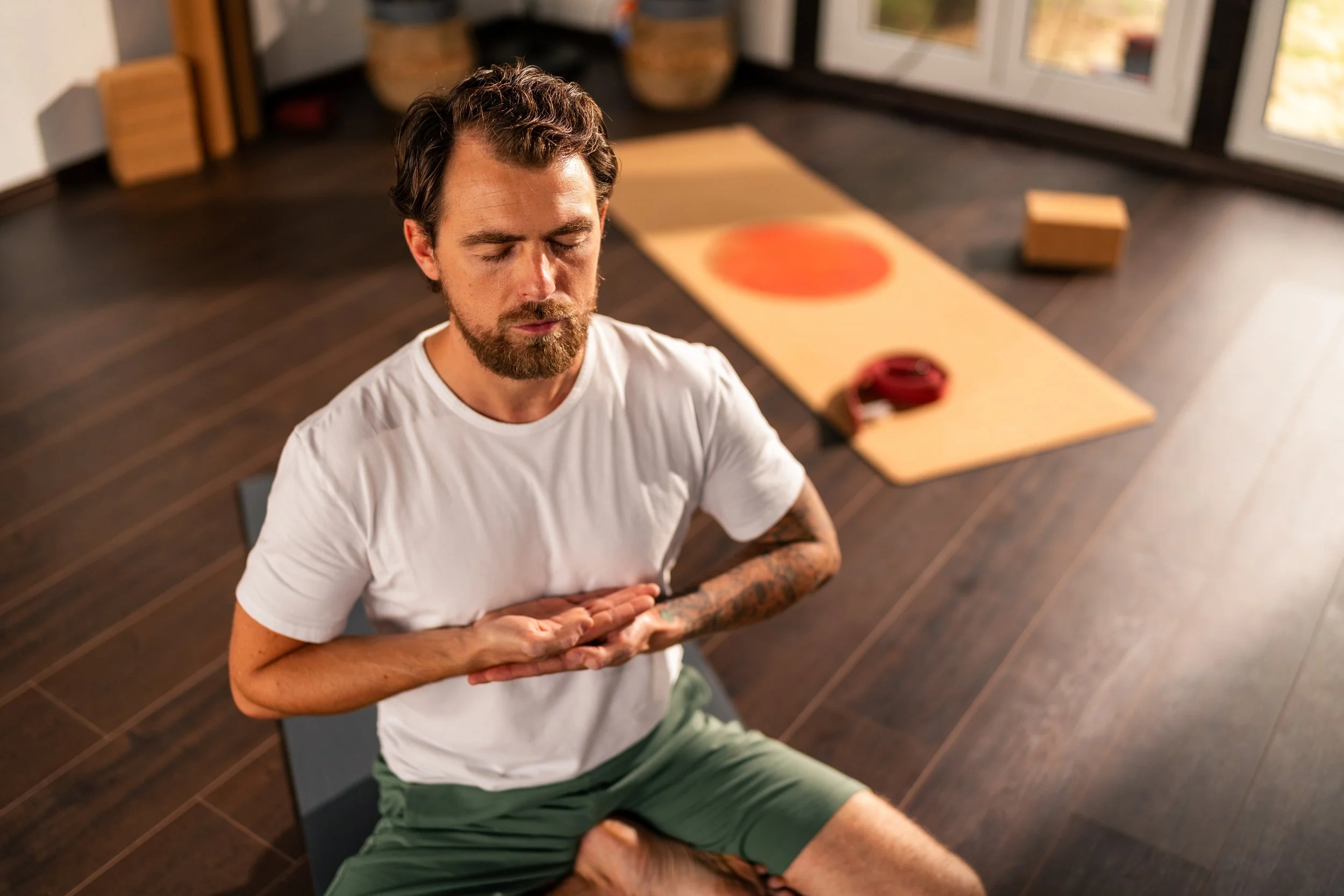
Articles
Emotional Regulation: Your Breath Holds the Key
Anxiety at 3am? Racing thoughts before a meeting? Your breath is the fastest reset button. One simple technique activates your vagus nerve, shifts you from fight-or-flight to calm in minutes. Here's the neuroscience behind breathwork for emotional regulation.
Do Less, Achieve More: The Science of Strategic Rest
Your best ideas rarely arrive when you’re grinding at your desk. They appear in the shower, on a walk, or staring at the ocean. This isn’t laziness, it’s brain science. Strategic rest might the missing piece in your performance plan.
I Have Seconds to Recharge: Quick Recovery Tactics for Busy Lives
In the modern world, we often feel perpetually “on” and stretched thin by constant demands. Even seconds of intentional recharge can help recalibrate our nervous system, lower stress, and prevent burnout. In my book Rest, Refocus, Recharge, I presented simple, science-backed strategies for those precious seconds when we need a quick reset. These rapid recovery techniques allow us to respond, rather than react, to life’s pressures by taking control of our physical and mental state.
Pivot from Tension to Ideation
In high-stress situations, tension can limit creativity and problem-solving. By letting go of physical tension through conscious relaxation practices, we can shift our minds from stress to a more creative mindset.
From Threat to Challenge
Stress is an unavoidable part of life, but how we perceive and respond to it can make all the difference. By shifting from seeing stress as a "threat" to viewing it as a "challenge," we can transform our stress response, using it to fuel healthy high performance. This mindset shift empowers us to meet difficulties with progress (no matter how small that progress is), thereby creating opportunities for growth and learning.
How Mindful Breathing Can Us Relax
Learning to use breath as a tool can unlock a sense of peace and balance, even in the face of stress. The science behind breathwork reveals why certain breathing techniques can shift the nervous system into a calm state, activating the body’s natural “rest and digest” mechanisms.
Breathe to Restore Calm, Elevate Your Energy, and Get in the Zone
Breathing is the most natural action we do. Conscious breathing practices can help us calm down, increase our energy levels, and even enter “the zone”—a state of optimal performance where we feel focused, present, and capable of our best work. This article explores the science of breathing to manage stress, elevate energy, and access peak performance.
Managing Stress and Anxiety through Breathwork
Stress and anxiety have become a pervasive part of modern life, often pushing our nervous systems into overdrive. From work pressures to personal challenges, these stressors can create a chronic fight-or-flight response, impairing physical and mental health. Fortunately, there’s a simple yet powerful solution: breathwork. By leveraging breathing techniques, we can counteract the stress response and restore balance.
Exercises to calm Your stress response
Mindful movement offers a powerful tool for managing stress and enhancing overall well-being. By understanding and addressing our body’s natural stress response through mindful movement, we can cultivate calm, increase focus, and foster calm.
Cold Exposure for Healthy High Performance: Pump the Parasympathetic Nervous System Brakes
In recent years, cold exposure has gained popularity as a powerful wellness practice with benefits that extend far beyond boosting resilience. Regular exposure to cold, whether through cold showers, ice baths, or winter swims, offers an impressive range of health benefits. Key to its positive effects is the activation of the parasympathetic nervous system, which promotes relaxation, mental clarity, and overall well-being. This article delves into the science behind cold exposure and its transformative effects on the body and mind.
How a Little Stress Goes a Long Way [Hormesis]
For healthy peak performance, the idea of hormesis—where a little bit of stress benefits the body and brain—is a key concept. Hormesis occurs when small amounts of stress stimulate the body to grow stronger and adapt. This principle, sometimes called “mitohormesis” when applied to cellular health, highlights the importance of balance: a little stress can be beneficial, but too much can lead to burnout and fatigue.
Why Phytonutrients Are Key for Recovery From Stress
Phytochemicals act as important antioxidants and induce hormesis—the adaptive stress-resistant process we are seeking to positively adapt to stress. These phytochemicals are potent free-radical scavengers and anti-inflammatory agents.
Find Calm in the Chaos
In the face of launching into a moment where you want to be your best, where you want to reach your peak, where you want to really reach your potential, there’s nothing harder than achieving a state of mental and emotional calm. And, in some ways, nothing more critical.
Use Stress to Your Advantage
Does it sound odd to suggest that there are advantages to stress? Isn’t it just damaging and to be avoided at all costs? Not quite. Interestingly, stress is a lot like food. Not having any at all is bad for us, and too much can make us sick. We need to control our stress levels, as much as we can, and help our bodies and minds to recover between moments of stress in our lives.
Thoughts on managing stress while delayed at an airport
Of course when you’re delayed (or in traffic, or in line, or otherwise held up from living your life) there is a stress response that happens. I am going to miss a meeting this afternoon, and I don’t want to inconvenience people so I am definitely affected by that. But at the same time being delayed is not in my control so getting stressed about it doesn’t serve me. In this modern world, being really stressed out rarely serves our ability to perform and it definitely compromises our health.
Master Mindful Breathing for Stress
When we are stressed, anxious and afraid, our breathing gets shallow and fast, almost like rapid panting. This breathing pattern can spark and modulate our “fight, flight or freeze” stress response. While critical to our survival in dangerous situations, this response can be crippling in our modern world. Extreme stress, fighting, running away, hyperventilating, or feeling paralyzed rarely serve us.
Hormesis: The Power of Balance and Moderation in Health and Wellness - 2023 Thrive Practice #3
I have a simple but powerful idea for you that in physiology is known as hormesis. This idea can help us cut through a lot of the noise in health and wellness content so that you know what you can do to improve your performance and wellbeing in a healthy way.
Feeling stressed? Rethink your diet.
It’s no surprise that people’s mental health has been suffering over the past couple of years. When we polled our community last year, the biggest challenge people cited was managing stress, anxiety, and depression during these times. In addition to the direct consequences, mental health challenges can impact other aspects of our health and wellbeing.






















![How a Little Stress Goes a Long Way [Hormesis]](https://images.squarespace-cdn.com/content/v1/5d26a6f7ee2da000013a4e3c/1736201607322-5RPLGBWR6TPZQF29LDKX/allef-vinicius-P2BoE6tb8ig-unsplash.jpg)






